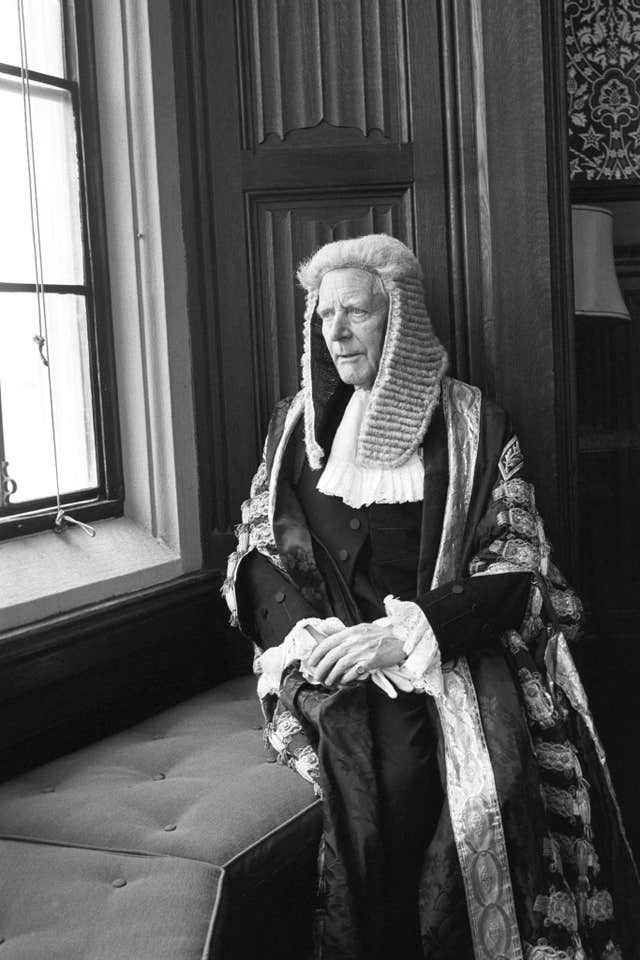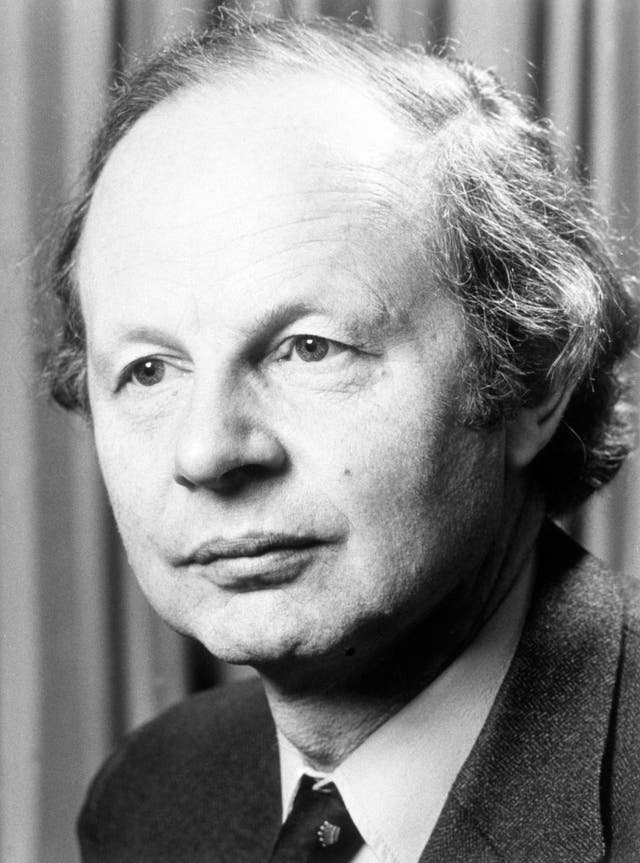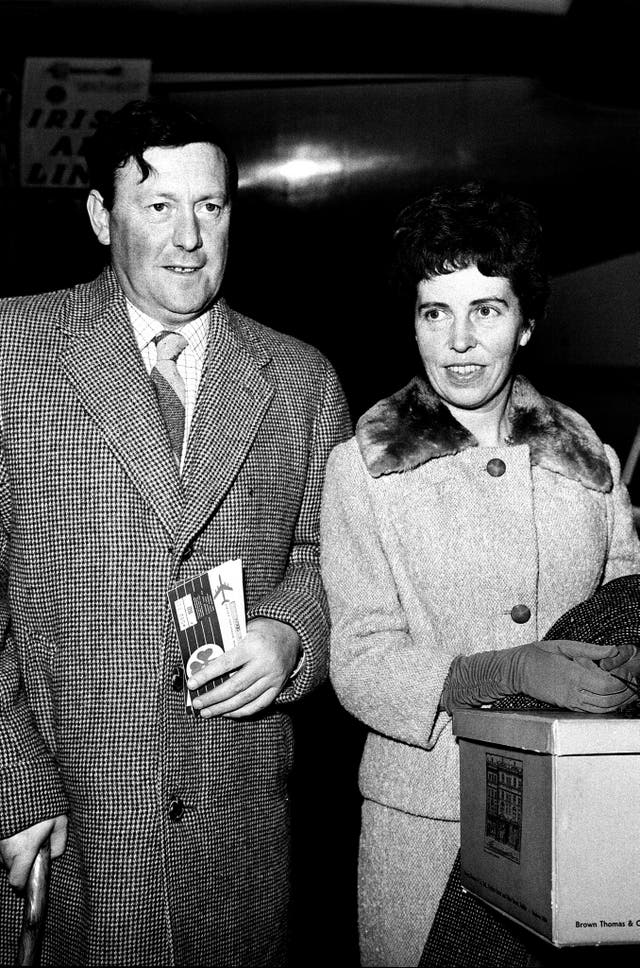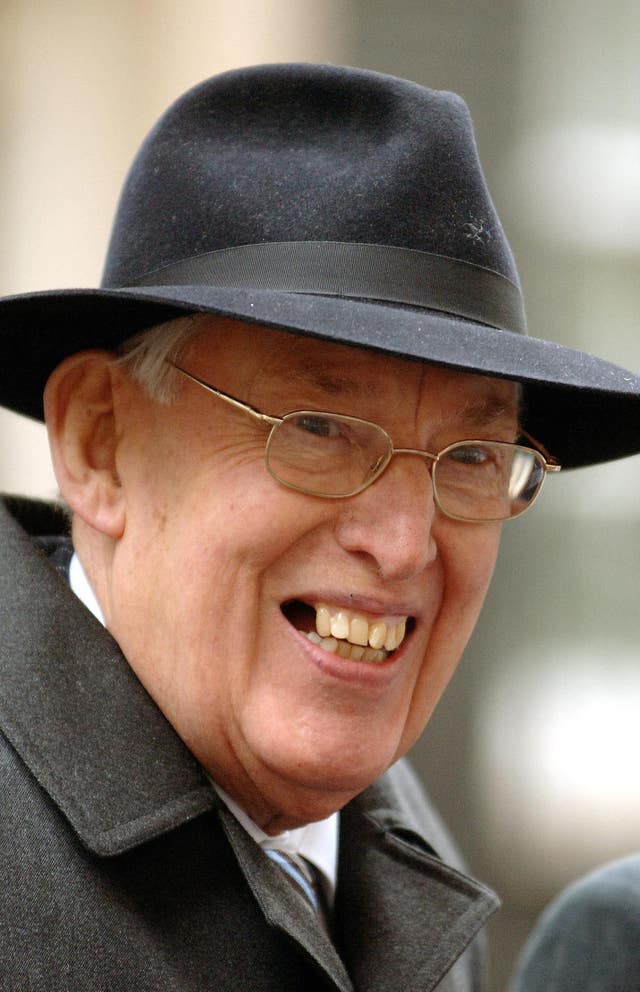Lord too ‘bitchy’ to lead North-South negotiations, records show
Among nine names proposed by Unionists, the Irish side determined that George Thomas, Lord Tonypandy, is ‘widely disliked’ at the House of Commons.

The Irish Government took a dim view of several proposed candidates to lead key negotiations on North-South co-operation, according to newly unsealed documents from the National Archives in Dublin.
A briefing note from the Department of Foreign Affairs described some of the high-profile figures put forward by Unionists and the British Government as ineffective politicians, bad lawyers and, in one case, as having a “bitchy temperament”.
It came as Irish officials in June 1991 were making considerations of their own candidates, as well as individuals put forward by the UK Government and Unionists, to chair Strand Two talks leading into the Good Friday Agreement.
Strand Two referred to the parts of the agreement which established North-South bodies and encouraged co-operation between the Republic and Northern Ireland.
Among nine names proposed by Unionists, the Irish side determined that George Thomas, Lord Tonypandy, is “widely disliked” at the House of Commons, where he had previously held the role as Speaker.
The briefing document says: “He has a petulant and ‘bitchy’ temperament and does not forgive slights, alleged or real.”
Expanding on what the commentary describes as a “large streak of sycophancy” towards prime minister Margaret Thatcher, the author of the briefing says that a senior journalist described him as a “kind of Welsh Uncle Tom”.

Lord Michael Havers, another candidate put forward by Unionists, is “regarded with affection more than respect” in British legal and political circles.
The former lord chancellor and ex-attorney general is noted as having a number of “blemishes on his legal reputation”.
In particular, the Irish side says that many feel he is a “bad lawyer” over his leadership of prosecution teams in the Guildford Four and the Maguire Seven cases – individuals wrongly convicted over bombings.
It says that Lord Havers “lacks much of the pomposity associated with his profession in this country” and adds: “He is relaxed, urbane, good-humoured and (after a few drinks) frequently indiscreet.”
Former lord chief justice of Northern Ireland, Robert Lowry, is said to have been held in “deep suspicion” over many years, having been associated, the briefing document alleges, with some of the “worst excesses of legal practice” including the admission of supergrass evidence.
Former home secretary and Northern Ireland secretary Merlyn Rees is noted as being warm and likeable, as well as having a wife of “Irish origin”.
However, the commentary on Mr Rees says that he is “often muddle-headed” and prone to offering “usually wide of the mark” advice to his successors.
In addition, much is noted on his “unmistakable” Unionist sympathies.

Elsewhere, “moderate Unionist” Sir Fred Catherwood was noted as being acquainted with SDLP leader John Hume and DUP leader Ian Paisley.
However, notes in the margins say that he “doesn’t enjoy confidence of Hume”.
The briefing document added: “He comes across as a well-intentioned but somewhat naive individual whose political judgment and understanding leave much to be desired”.
The Lord Colnbrook, former Northern Ireland secretary of state Humphrey Atkins, is noted as a “Tory traditionalist in the Whitelaw/Carrington mould – though without the charisma of either”.
More positively, the document says that he is regarded as a decent, honourable and self-sacrificing politician.
Lord Colnbrook was appointed as secretary of state having been regarded as a “safe pair of hands” by Margaret Thatcher, the document adds, but his credibility among nationalists was eroded during the Maze hunger strikes.
After an apparent delay in responding to the initial nine names put forward to the Unionist side, 10 additional nominees were put forward by then UUP leader Jim Molyneaux.
He cautioned that inclusion on the list did not mean the individuals were “prepared or able to act”.
These included Sir Philip Foreman, the former chairman of Short Brothers, who could not be countenanced by the Department because of a “record of discrimination” at that company at the time.
David Owen, former British foreign secretary, was seen to be “very unlikely to be sympathetic” and was further ruled out on personality grounds – the author saying he was “widely known as arrogant, impatient and difficult to work with”.
Elsewhere Gordon Beveridge, then pro-vice-chancellor of Queen’s University, is listed as being “perceived as part of Unionist clique that has dominated Queen’s for many years”.
While there are at least brief background blurbs for most of the list, the proposal of Conor Cruise O’Brien, a former Irish minister known for pro-Unionist views, is noted simply as “hardly a serious suggestion”.

On a British list of candidates, Lord George Thomson of Monifieth was found to have had a position of “moderate Unionism” but further believed to be open to envisaging a “solution to the Irish problem emerging within the broader European context”.
The commentary on Sir Patrick Neill, then warden of All Souls College Oxford, said he was known sometimes to take “somewhat quirky positions” and to “go a little over the top about subjects which he may not be totally familiar”.
A source for the document also described him as being one of the “great and the good within the constraints of being one of the major figures within the Establishment”.
Former home secretary Lord Robert Carr was described by the Irish as a “classic Heathman or Tory ‘wet’”, while his work as a “natural conciliator” during the 1970 docks strike was also noted favourably.
On the other side of Tory divides, the Irish side noted that Lord Robert Blake, another possible candidate, had given “sycophantic loyalty” to Margaret Thatcher.
For Ireland’s part, several candidates were put on its shortlist including former deputy Labour leader Denis Healey (noted as being of Irish descent), and former Australian prime minister Gough Whitlam (noted as having a “very benevolent interest in Ireland”).

The documents also suggest that high commissioner of Canada to the UK Roy McMurtry had been approached informally for the position but was ruled out by Mr Paisley as not acceptable.
This came after Mr McMurtry disclosed that he had said in a speech 15 years earlier that Mr Paisley was not a proper person to visit Canada.
This batch of Strand Two talks was ultimately chaired by former governor-general of Australia Sir Ninian Stephen, who was not among the candidates discussed in the document.
– This article is based on files in 2024/130/2.





